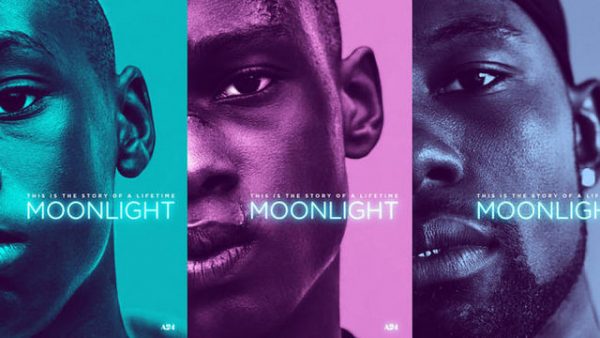
Black men are often depicted as hypersexual, aggressive, and criminal in the media, which perpetuates long-standing racial and gender stereotypes and inequalities. Director Barry Jenkins attempts to deconstruct these stereotypes of Black masculinity in the award-winning Moonlight. The movie tells the story of Chiron, a young, Black, queer man, on a quest for self-acceptance amidst the homophobia of his peers and socioeconomic circumstances of his Atlanta neighborhood. Social science research sheds light on the origins of these stereotypes and how they influence Black men’s gender and sexual identity performances.
While virtually all men are subjected to the pressures of acting like a “real man,” Black men experience additional strain due to racialized stereotypes that depict them as inherently dangerous and hypersexual. Due to the socioeconomic disadvantages that plague many Black communities, Black men develop alternative constructions of masculinity that emphasize moral and masculine superiority over white men. For example, they may view whiteness as feminine and homosexual, and thus position themselves as the heterosexual man whose masculinity is reaffirmed through sex with women. The result is that some Black men label those who behave in traditionally feminine ways as “sissies” or “punks” and justify violence perpetuated against them.
- Patricia Hill Collins. 2004. Black Sexual Politics. New York: Routledge.
- Brittany C. Slatton and Kamesha Spates. 2014. Hyper Sexual, Hyper Masculine? Gender, Race and Sexuality in the Identities of Contemporary Black Men. New York: Routledge.
Due to the stigmas described above, many queer Black men attempt to remain “in the closet” to avoid harassment and violence. Other Black men only engage in homosexual activity on the “down low” (DL). And others navigate stigma by exploring queer experiences without distancing themselves from their straight public identity. For example, some Black men frequent gay hip hop clubs where they do not need to “come out”; they can enjoy a space where they can explore their sexuality with other men while simultaneously performing heterosexuality by acting “hard” with hip-hop music. Yet, being “in the closet” or “on the down low” may further stigmatize Black queer men as sexually deviant.
- Jeffrey McCune. 2008. “’Out’ in the Club: The Down Low, Hip-Hop, and the Architexture of Black Masculinity.” Text and Performance Quarterly 28(3): 298-314.
- Riley Snorton. 2014. Nobody is Supposed to Know: Black Sexuality on the Down Low. Minneapolis: University of Minnesota Press.
Messages regarding the need to act “tough” also affect sexually abused Black male children. McGuffey interviewed 62 parents of Black and Puerto Rican sexually abused boys. He found that fathers believed male-perpetrated sexual abuse threatened their son’s masculinity. Many were afraid that the abuse made their sons act “too emotional” and that they would become homosexual. As such, they encouraged heterosexual behavior by telling them not to touch other boys, asking them if they had a girlfriend, and telling them to look at girls’ physical characteristics.
- Shawn McGuffey. 2008. “‘Saving Masculinity:’ Gender Reaffirmation, Sexuality, Race, and Parental Responses to Male Child Sexual Abuse.” Social Problems 55(2): 216-237.

Comments